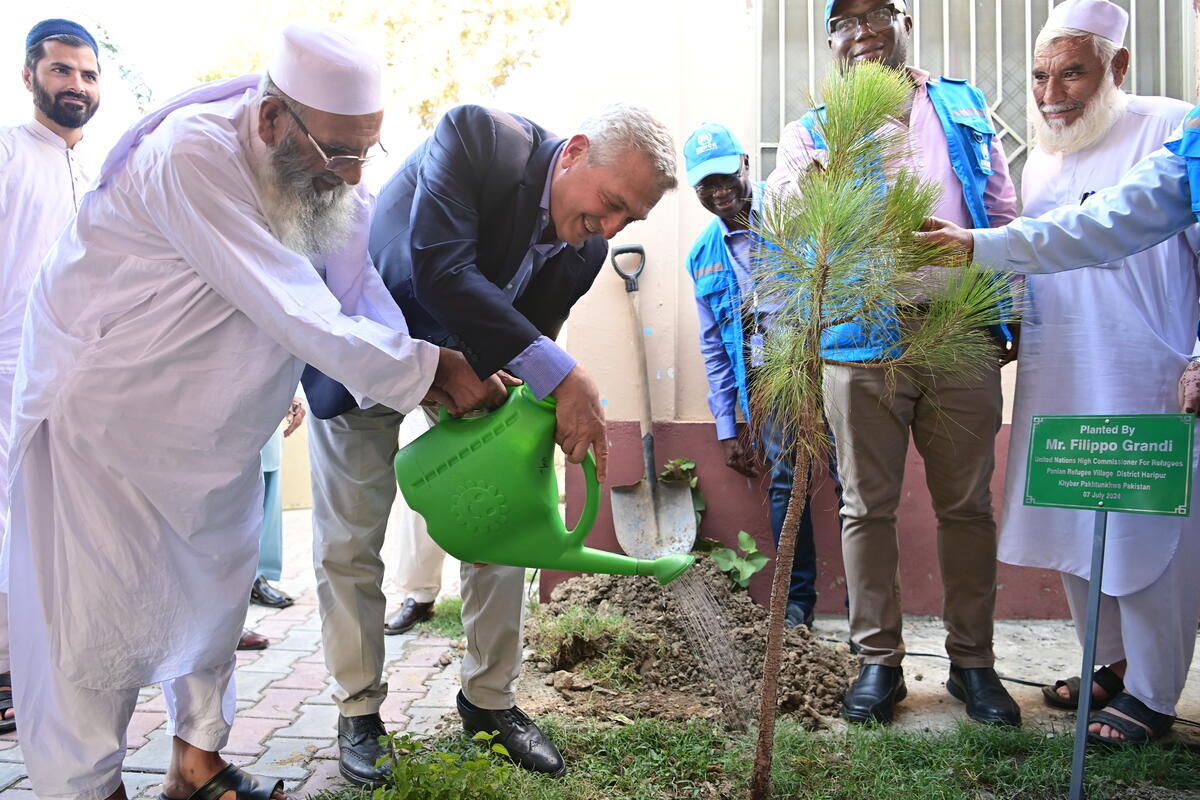Refugee agency set to start assisting Afghan refugees return home
Refugee agency set to start assisting Afghan refugees return home

A 29-truck convoy travelling to southern Afghanistan Thursday with supplies for returning Afghan refugees.
PESHAWAR, Pakistan, Feb. 28 (UNHCR) - The United Nations High Commissioner for Refugees formally begins assisting Afghans to return to their shattered homeland Friday with the scheduled opening of the first registration facility just outside Peshawar.
At the same time, the agency reported that the heavy influx of Afghan refugees into the Chaman border area in southern Pakistan had eased in recent days. On Thursday, some 10,000 people were camped on the edge of the Killi Faizo staging site, hoping to be registered and transferred into UNHCR camps further inland.
In recent weeks, up to 50,000 Afghans arrived at the border, many saying they were fleeing persecution as well as the effects of a three-year drought that wiped out crops and livestock.
Despite the slowdown in the number of arrivals, however, an agency statement said "trucks were seen depositing people at the border throughout the entire Eid holiday, normally a time when Muslims limit travel in order to celebrate." The statement added that the traffic could be "an indication of continued despair in some parts of the country."
The refugee registration centre, to be opened in the town of Takhtabaig, is the first of seven such facilities the agency plans to open in Pakistan in the coming weeks to record up to 35,000 Afghans. As many as ten similar facilities are also scheduled to operate in Iran. The two countries together host an estimated 3.5 million Afghan refugees.
The refugee agency said in a statement that it expects to help some 1.2 million persons, including an estimated 400,000 internally displaced people, return to their homes this year.
The refugees who register at the centres to be located near the Afghan border will be given transportation expenses once they enter Afghanistan. The returnees are also to be provided with a three-month supply of food and other items to help them begin new lives in their war-torn villages and towns.
UNHCR has consistently cautioned that a mass return of refugees to Afghanistan could cause serious problems, given the country's shattered infrastructure following two decades of war. But it decided to assist those who wished to return beginning March 1. Since the start of the year, an estimated 150,000 Afghans have gone back home voluntarily.
Under the plan that is set to begin Friday, returnees who register will be given a document they can exchange at cash distribution points in Jalalabad and other cities and use to pay for their trip home. They will also be handed a document at the cash distribution centres allowing them to receive the food and other aid once they arrive in their home provinces.
The agency has already pre-positioned relief items in Jalalabad, near the Pakistani border, to ensure that adequate stocks are on hand for the returning Afghans. In recent days more than 20,000 plastic tarpaulins were flown in six Hercules C-130 cargo planes from Dubai.
A convoy of 15 trucks carrying items such as blankets, jerry cans, and plastic mats left Thursday for Jalalabad. A second convoy of 29 trucks left Thursday for Afghanistan's southern Kandahar Province.









